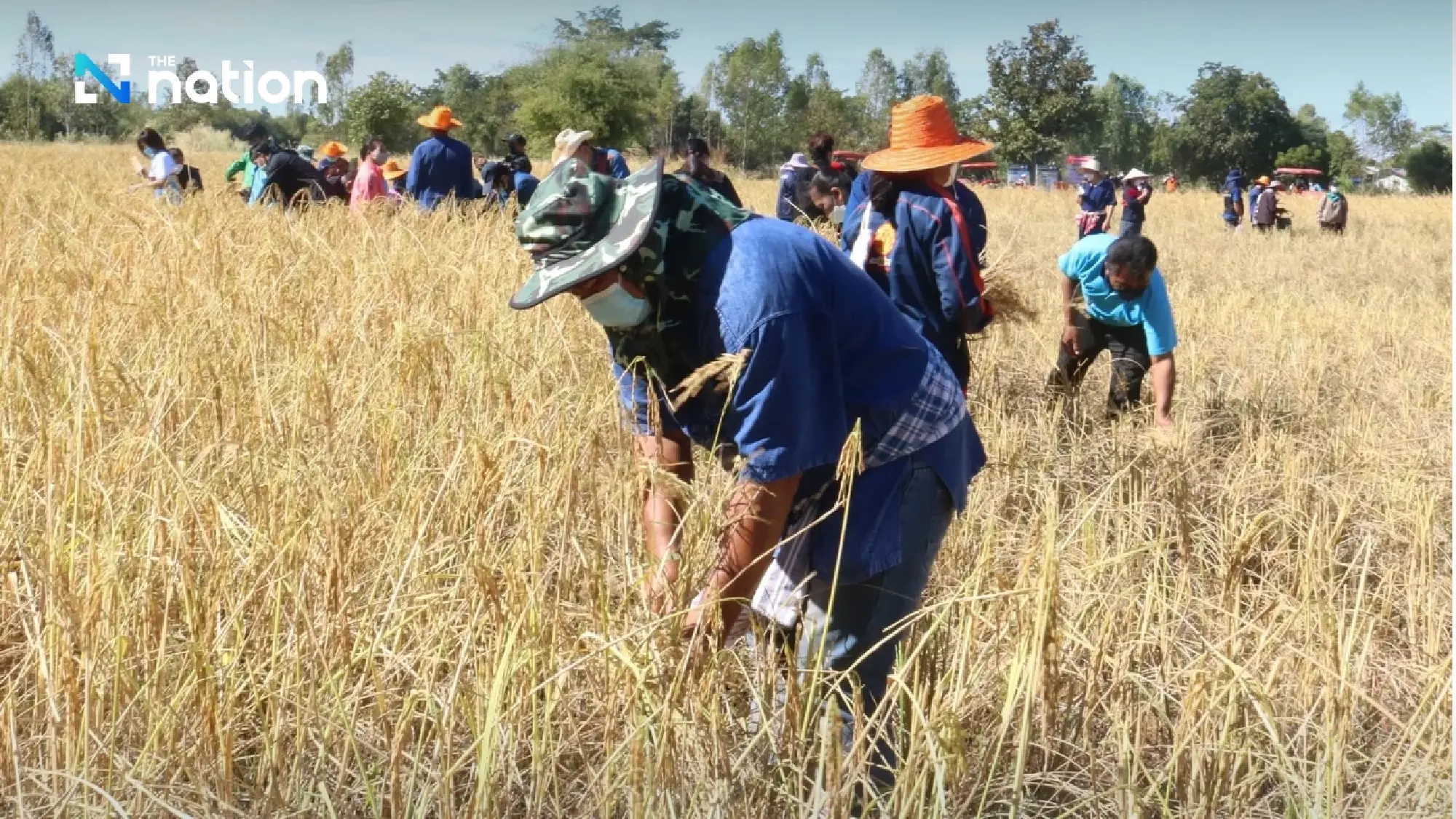Tags
Thai rice exports hit by India stock release, rising competition

Thai rice faces a prolonged crisis as global and domestic prices fall. India’s plan to release 20 million tonnes of rice threatens to drive prices down further, while Vietnam pushes premium “ST” rice to compete with Thai jasmine.
Chukiat Opaswong, honorary president of the Thai Rice Exporters Association (TREA), told Thansettakij that India’s planned stock release aims to make room for new-season crops. Much of the rice will be used for ethanol production and poverty alleviation, but part will enter the open market.
If the rice is upgraded to export quality, the Free On Board (FOB) price, including freight, could fall to US$280–300 per tonne. This would hit Thai exports hard, as our 5% white rice is now selling at US$365–370 per tonne, Chukiat said.
Thai rice prices have already dropped sharply from an average of US$550–560 per tonne in 2024, following India’s return to white rice exports late last year. The downturn has also filtered into the domestic market, with paddy rice now fetching just 5,000–6,000 baht per tonne.
Even with the government’s support scheme of 1,000 baht per rai for up to 10 rai, farmers are struggling. Costs remain high, and many could still face losses, he added.

Vietnam pushes premium rice exports
Vietnam, another major exporter, has shifted its strategy to focus solely on high-value premium rice. Its “ST” variety, a soft-fragrant strain gaining popularity worldwide, now sells for US$800–850 per tonne.
Although still below Thai jasmine rice, priced at around US$1,050 per tonne, ST rice is increasingly attractive in markets such as the United States. If ST rice keeps expanding in premium markets, Thai jasmine will inevitably lose ground, Chukiat warned.
He also noted that the ongoing Thai-Cambodian border conflict, which has led to prolonged checkpoint closures, may divert Cambodian Phka Rumduol rice to Vietnam. This would allow Vietnam to process and export it in direct competition with Thai jasmine.

Import cuts deepen woes
Thailand also faces falling demand from traditional buyers. Indonesia, which normally imports around four million tonnes annually, has announced no imports this year due to improved domestic harvests.
The Philippines has temporarily suspended rice imports for 60 days from September 1 to October 30 to stabilise domestic prices during harvest season.
Meanwhile, Japan has opened its market to US rice in exchange for a 15% tariff deal. Chukiat said this would likely reduce Japanese purchases of Thai white rice, which had previously averaged 300,000–350,000 tonnes per year.
Given the many negative factors at play, both the government and the private sector must urgently devise a joint strategy to safeguard Thailand’s rice industry, he stressed.

Published Date: August 27, 2025






